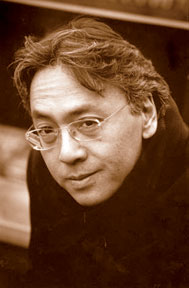The noble servant –Kazuo Ishiguro’s ‘Stevens’ in The Remains of the
Day
By Dilshan Boange
(Part 2)
The ‘Great Butler’ theorem
The story narrated by Stevens presents the reader a systematic
narrative of his theorem of what he perceives to mark as traits of a
‘Great butler’. The idea of what makes a ‘Great butler’ isn’t fanciful
ponderings on the part of Stevens but well scrutinized and argued
perspectives based on a number of rational arguments that are
substantiated through reflecting on experiences that can be analyzed to
extract examples of how duties of the butler’s profession were
prioritized above the more personal inclinations or emotions that may
hinder the performance of duties due to being sentimentally affected.
The theorem of Stevens is a well thought conviction that has at its core
not only the best interest of his profession in focus but also higher
ideals as to what end the professionalism of a butler should serve in
the larger picture of things. To one such as Stevens the occupation of
butler is by no means simply a way to earn his keep, it is far from such
meagerly devised income earner, as is sadly the case of most
professionals today who are engaged in the more ‘respected professions’.
Triumphs in standards

 |
|
Kazuo Ishiguro |
Through the contemplations Stevens embarks on in the novel, one of
the major turning points that mark the aspect of his professionalism is
cited as the conference of 1923 where his employer Lord Darlington
hosted a conference of two to three days with the participation of
several figures of influence in politics at an international level. The
focus of the conference had been to re-evaluate the fate of post World
War one Germany and rethink the terms of the treaty of Versailles. The
conference is spoken of as an event that marked a significant stride in
the politics of Europe and had had implications on the course of
history.
And so the role of Stevens, as the head of the staff cadre at
Darlington Hall, (the venue of the conference) is portrayed and in fact
proven as one which was of a very onerous nature. It had been so that
the call of duty had required his skills to surpass its usual levels and
be to his utmost in achieving excellence at his profession. Stevens
recounts this event as one which marked his abilities as not mediocre
but proven to be of high calibre.
Looking back on this event at the end of the chapter titled Day Two
–Morning Salisbury Stevens says –“Let me make clear that when I say the
conference of 1923, and that night in particular, constituted a turning
point in my professional development, I am speaking very much in terms
of my own humble standards.”
The humility and modesty that one finds characterizing the nature of
Stevens indicates a strong virtue that is deemed very rightly as
gentlemanly. Though one may view Stevens as one who merits to be praised
for his exponential skills as a butler, in his mind he views himself in
keeping with a sense of modesty that appears to have been well
cultivated in grooming himself with gentlemanly ways of conduct and
thinking.
The conference of 1923 is one that truly tested his ability to keep
his head about him in the midst of all the organizational chaos that
runs an all too natural course in scenarios of event management which is
needless to say what Stevens was engaged in. And the challenges to
overcome and perform himself commendably in answering the call of duty
certainly warrants him to conclude by saying –“For all its sad
associations, whenever I recall that evening today, I find I do so with
a large sense of triumph”.
Emotional intelligence in the name of duty
When he says (in afore excerpted words) ‘sad associations’ the
principal allusion made there is the demise of his father during the
last night of the conference which had been a very pressing schedule
imposed on the butler of Darlington Hall. Stevens’ father is presented
to Darlington Hall to serve as the under-butler to replace the one who
had left the service; and Stevens senior himself is portrayed as a
highly professionalized butler whose skills and knowledge of the
profession is superlative. In fact one of the great inspirations and
role models in the line of the profession, to Stevens is his father.
And in fact Stevens mentions his father along with two others he
names – Marshall and Lane as those whom he believes qualify to be
labeled as ‘great Butlers’. One phenomenal and awesome trait that is
shown in Stevens in the course of dealing with the final night of the
conference is that Stevens displays a great sense of emotional
intelligence in grappling with the traumatic occurrence and disallows
emotional turmoil to surface and disrupt his professional performance
and thereby he displays great professionalism that prioritizes his duty
above his personal needs.
Can this nature of behaviour be seen as reprehensible? And ethically
unsound when a man does not stop his occupational duties to dwell into a
moment of mourning for the deceased father as generally called for by
societal norms? But regardless of how it may be viewed from a societal
angle from a point of assessing the nature of professionalism in an
individual who deems himself a professional it is rather clear that the
devotion to excel at one’s profession by prioritizing the calls of duty
above those that are strictly personal displays in Stevens his mettle as
a professional. He states his reasons to be engaged in his duty calls
over rushing up to his father’s room to grieve over the deceased in his
words to the housekeeper Ms. Kenton who breaks the news to him most
gently being herself affected by it with great empathy to Stevens.
“Miss Kenton please don’t think me unduly improper in not ascending
to see my father in deceased condition just at this moment. You see I
know my father would have wished me to carry on just now.” The fact that
Stevens continues with his professional duties without allowing himself
to be distracted is also in a way in deference to his father who would
have lauded such highly disciplined devotion to produce professional
excellence.
This demonstrates a manner of pragmatism that while may seem cold and
not in keeping with sentimentality one cannot help but note how highly
professionalized Stevens seems to have a sense of emotional intelligence
in him to decide the best course of action under trying conditions.
Doing his best to conceal any pangs of sadness that may attempt to
surface in his visage and affect his performance Stevens does not allow
himself respite by delegating any of his tasks to an under-servant but
continues with his usual diligence.
And one of the testimonies to his extraordinary skill and competency
is found in the compliment the German countess attending the conference
pays his after dinner while he attend on the guests in the smoking room.
“At one point during dinner, Stevens, I would have sworn you were at
least three people.” Stevens therefore is without a doubt one who has
every right to view himself (especially in respect of his abilities to
dutifully perform his tasks without shortcomings assigned ) as a true
professional at his job, the profession of Butler.
|

